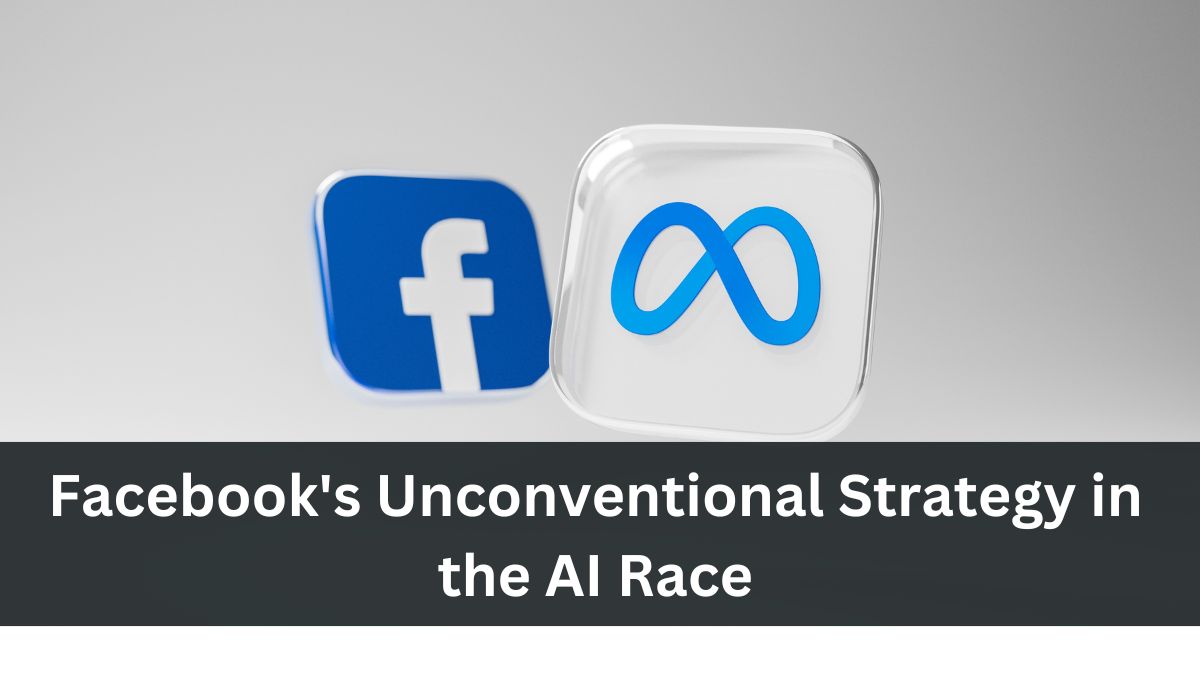AI
Facebook’s Unconventional Strategy in the AI Race

Unveiling Meta’s Bold Move
Mark Zuckerberg, the CEO of Meta Platforms, has set his sights on an unconventional strategy in the realm of artificial intelligence (AI) — giving away the company’s technology for free. While competitors are pouring significant resources into developing cutting-edge AI tools, Meta is taking a different approach, aiming to democratize access to AI by making its advancements widely available.
The Contrarian Approach
Meta Platforms, like its counterparts, invests heavily in top-tier computer chips, proficient computer scientists, and substantial energy to craft robust AI tools. However, unlike its competitors, Meta is relinquishing its most advanced chatbots and underlying AI technology to the public domain. This unconventional move, spearheaded by Zuckerberg, is underpinned by a strategic bet — by making AI accessible to all, Meta can shape the future of human-machine interactions while undercutting competitors’ pricing.
Seizing Control of Destiny
Meta’s decision stems partly from past setbacks, notably when Apple restricted its data-gathering capabilities, leading to a substantial revenue loss. To avoid similar vulnerabilities in the AI landscape, Meta is pivoting towards a model where control over technology is paramount. By offering AI services for free, Meta aims to cultivate a user base akin to its social media platforms, banking on its prowess in converting user engagement into lucrative advertising revenue.
The Competitive Landscape
In the race to offer free AI services, Meta faces formidable rivals like OpenAI and Google. Both entities have launched their versions of free AI models, albeit without divulging the underlying code, which remains proprietary. Despite Meta’s substantial investments in AI, the immediate returns are uncertain, given its reliance on ad-based revenue rather than selling cloud access to AI tools, a strategy adopted by competitors.
The Open-Source Imperative
Meta’s recent move to release its generative AI tool, Llama 3, as open-source reflects its commitment to democratizing AI. By offering the code to businesses with fewer than 700 million users, Meta seeks to foster innovation and broaden the reach of its AI solutions across various platforms, including Instagram, WhatsApp, and Facebook.
Zuckerberg’s Hands-On Approach
Mark Zuckerberg’s direct involvement in integrating Meta AI into the company’s ecosystem underscores his hands-on leadership style. Dubbed “the Eye of Sauron” by some employees, Zuckerberg’s meticulous attention to detail reflects his vision of Meta’s AI becoming ubiquitous, catering to the average user rather than just early adopters.
Addressing Concerns
While Meta’s open-source AI strategy is laudable, concerns linger regarding potential misuse by adversaries and hackers. To mitigate such risks, Meta has engaged in discussions on AI safety and national security, implementing safeguards within its AI models to prevent unauthorized use.
Navigating User Feedback
Meta’s journey towards integrating AI into its platforms has encountered user resistance, particularly with the revamp of search functions. Despite initial pushback, Meta remains committed to refining its AI offerings based on user feedback, acknowledging the iterative nature of product development.
Leveraging Community and Talent
Meta’s decision to release AI models as open-source not only fosters community-driven innovation but also serves as a recruitment tool for top AI researchers. By leveraging the collective expertise of the open-source community, Meta aims to enhance the capabilities of its AI tools continually.
Redefining Meta’s Future
If Meta’s gamble pays off, it stands to redefine its trajectory in the tech landscape, gaining autonomy in shaping the future of AI applications. By commoditizing AI and avoiding dependency on major tech giants, Meta charts a course towards self-determination and innovation leadership.
Forging Ahead
Meta’s foray into democratizing AI heralds a new chapter in the tech industry’s evolution. As the company navigates the complexities of offering free AI services, it remains steadfast in its commitment to empowering users and fostering innovation. In embracing openness and collaboration, Meta not only challenges the status quo but also paves the way for a more inclusive and accessible AI ecosystem. As the AI race intensifies, Meta’s bold strategy may prove to be the catalyst for transformative change, ushering in an era where AI is not just a privilege but a fundamental right for all.
